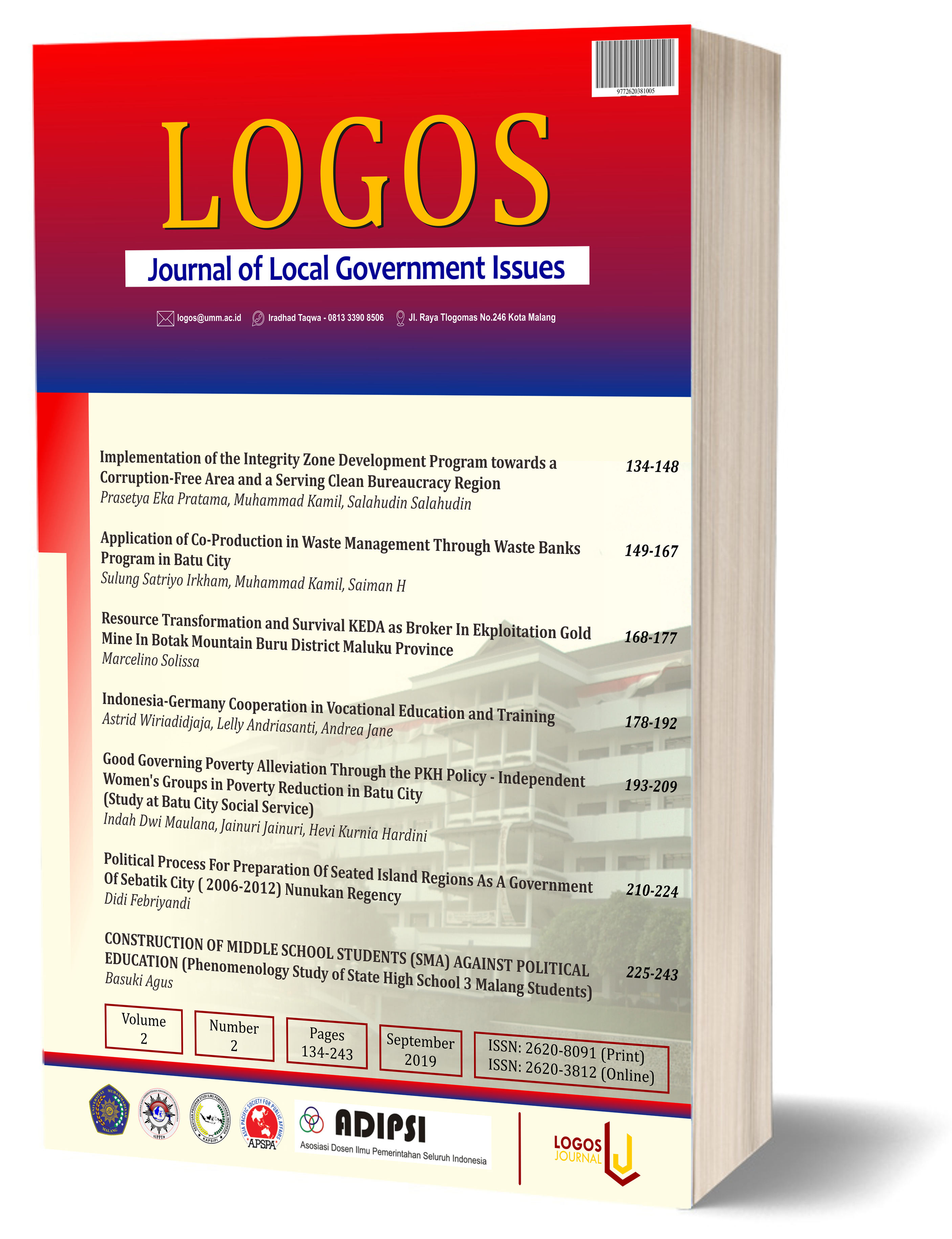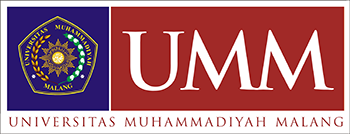Indonesia-Germany Cooperation in Vocational Education and Training
DOI:
https://doi.org/10.22219/logos.Vol2.No2.178-192Keywords:
Indonesia, Germany, Cooperation, VET, Dual Education SystemAbstract
To reduce the unemployment rate, Indonesia has focused since 2007 on the development of Vocational Education and Training (VET). VET is one of solutions that would enhance human resources quality in Indonesia, which has 262 million people. However, the number of unemployed graduates from vocational education is still high until 2019. It means there is something wrong in Indonesia’s current VET system. Meanwhile in Germany, VET is a pillar of national education which is based on a dual system. This system is successful in Germany. As one of the biggest donor countries in promoting VET, Germany tries to introduce a dual education system through bilateral relations with developing countries such as Indonesia. Indonesia seems to need to try to develop VET base on dual education system through cooperation with Germany. Thus, the research question of this article is “why does Indonesia need to make a co-operation with Germany in developing VET based on a dual education system?’ To answer the research question, this paper uses qualitative method which results in the following conclusion: Cooperation with Germany would open the opportunity for abundant human resources in Indonesia to fulfill a huge labor demand in Germany particularly and Europe in general. Moreover, the cooperation makes Indonesia gain support in developing the VET system in this country and get transfer of knowledge and technology from Germany as a developed country
Downloads
References
Chen, D. (2009). Vocational Schooling, Labor Market Outcomes, And College Entry: Vocational Schooling, Labor Market Outcomes, And College Entry, The World Bank.
Deissinger, T. (2015). "The German dual vocational education and training system as ‘good practice’?" Local Economy 30(5): 557-567.
Euler, D. (2013). "Germany's dual vocational training system: a model for other countries?".
Garloff, A. and R. Wapler (2016). "Labour Shortages and Replacement Demand in Germany. The (Non-) Consequences of Demographic Change."
Graf, L. (2013). The hybridization of vocational training and higher education in Austria, Germany, and Switzerland, Verlag Barbara Budrich.
Holsti, K. J. (1970). "National role conceptions in the study of foreign policy." International Studies Quarterly 14(3): 233-309.
Ji-Yeon, L. (2014). "Vocational Education and Training in Korea: Achieving the Enhancement of National Competitiveness." Korea Research Institute for Vocational Education and Training, Report, Korea.
Kadir, S. and B. Bachrul (2016). "Technical and Vocational Education and Training in Indonesia: Challenges and Opportunities for the Future." Lee Kuan Yew School of Public Policy, Microsoft Case Study on Series on Technical and Vocational Education and Training, Singapore.
Miles, M. B., et al. (2014). Qualitative data analysis: A methods sourcebook. 3rd, Thousand Oaks, CA: Sage.
Mustafa, U., et al. (2005). "Enhancing vocational training for economic growth in Pakistan."
Office, I. L. (2014). ASEAN Community 2015: Managing Integration for Better Jobs and Shared Propserity, International Labour Office.
Pendidikan, K. and K. R. Indonesia (2016). Revitalisasi Pendidikan Vokasi, Jakarta.
Pfaltzgraff, R. L. (2001). Contending theories of international relations: a comprehensive survey, Longman.
192
Please Cite This Articel As : Astrid Wiriadidjaja et al., Indonesia-German Cooperation in Vocational Education and Training: Journal of Local Government Issues (LOGOS), https://doi.org/10.22219/LOGOS.Vol2.No2.178-192
Portela Souza, A., et al. (2015). Vocational Education and Training in Brazil: Knowledge Sharing Forum on Development Experiences: Comparative Experiences of Korea and Latin America and the Caribbean, Inter-American Development Bank.
Raggatt, P. (1988). "Quality control in the dual system of West Germany." Oxford Review of Education 14(2): 163-186.
Trilling, B. and C. Fadel (2009). 21st Century Skills.: Learning for Life in Our Times, John Wiley & Sons.
Viotti, P. R. and M. V. Kauppi (2019). International relations theory, Rowman & Littlefield Publishers.
Downloads
Published
How to Cite
Issue
Section
License
Copyright (c) 2019 Astrid Wiriadidjaja, Lelly Andriasanti, Andrea Jane

This work is licensed under a Creative Commons Attribution-ShareAlike 4.0 International License.
Authors who publish with this journal agree to the following terms:
- Authors retain copyright and grant the journal right of first publication with the work simultaneously licensed under a Creative Commons Attribution-ShareAlike 4.0 International License. that allows others to share the work with an acknowledgment of the work's authorship and initial publication in this journal.
- Authors are able to enter into separate, additional contractual arrangements for the non-exclusive distribution of the journal's published version of the work (e.g., post it to an institutional repository or publish it in a book), with an acknowledgment of its initial publication in this journal.
- Authors are permitted and encouraged to post their work online (e.g., in institutional repositories or on their website) prior to and during the submission process, as it can lead to productive exchanges, as well as earlier and greater citation of published work (See The Effect of Open Access).

This work is licensed under a Creative Commons Attribution-ShareAlike 4.0 International License.













